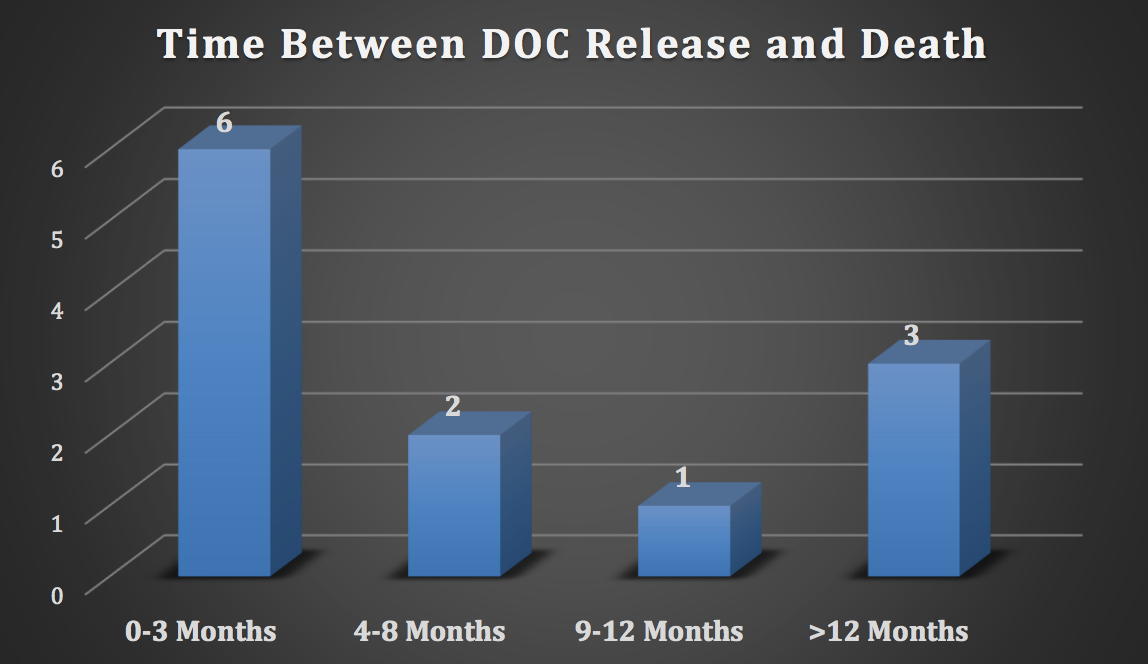In 2018, Delaware had the sixth highest number of overdose deaths in the country, yet the state still has major gaps in care for its more than 6,300 incarcerated people—nearly half of whom had substance use issues.
An annual report published on July 2 by the Delaware Overdose Review Commission found that in 30 percent of 56 deaths studied, the person had been previously incarcerated by the Delaware Department of Corrections. The Commission also found that half of the decedents with a verified release date had died of a fatal overdose within three months of their release. Reduced tolerance after a period of enforced abstinence contributes to their higher risk.
This is also seen, for example, in New York City—where 37 percent of almost 60 people dying within six weeks of release from a NYC jail between 2011 and 2012 experienced an opioid-involved overdose—and in North Carolina, where people released from incarceration were 40 times more likely to die of an opioid-involved overdose in the first two weeks. Nationally, the Centers for Disease Control and Prevention notes evidence that approximately 10 percent of overdose deaths involve people who were released from institutions in the month prior.
The Delaware Overdose Review Commission makes a number of recommendations to tackle these preventable deaths. Medication-assisted treatment, specifically naltrexone, ought to be “promoted and offered to every eligible inmate numerous times,” according to the report. Beginning in early 2019, the Department of Corrections will receive $350,000 to expand MAT in its facilities, though this is not a sustained source of funding. A 2017 treatment needs assessment conducted by the department found that providing methadone for 100 individuals would cost $144,000 a year; providing Suboxone for 100 incarcerated people would cost $576,000 a year.
Although the Commission does not explicitly state that the Department of Corrections should ensure access to corrections-provided medication following release, the Delaware State Senate unanimously passed a bill on June 27 directing the Department of Corrections to provide “proper reentry planning for justice-involved individuals post-incarceration to ensure continuity of care.”
The lack of access to adequate care for people recently released and who have opioid use disorders also drives the high rates of overdose deaths for this demographic. “To prevent further tragedies through early intervention,” as Commission chair Dr. Rebecca Walker described, the report recommends that the Department of Corrections provide naloxone, the medication that reverses opioid overdoses, to all at-risk people when they are released.
Denial of MAT to incarcerated people in the US is as widespread as it is damaging, and many advocacy efforts are demanding change.
“The loss of nearly a Delawarean per day is unacceptable,” said Lieutenant Governor Bethany Hall-Long, who helped create the Commission as a state senator. “We need boots on the ground to expand access and treatment to curb the mortality of fatal overdoses. Working together, we can save lives.”





Show Comments